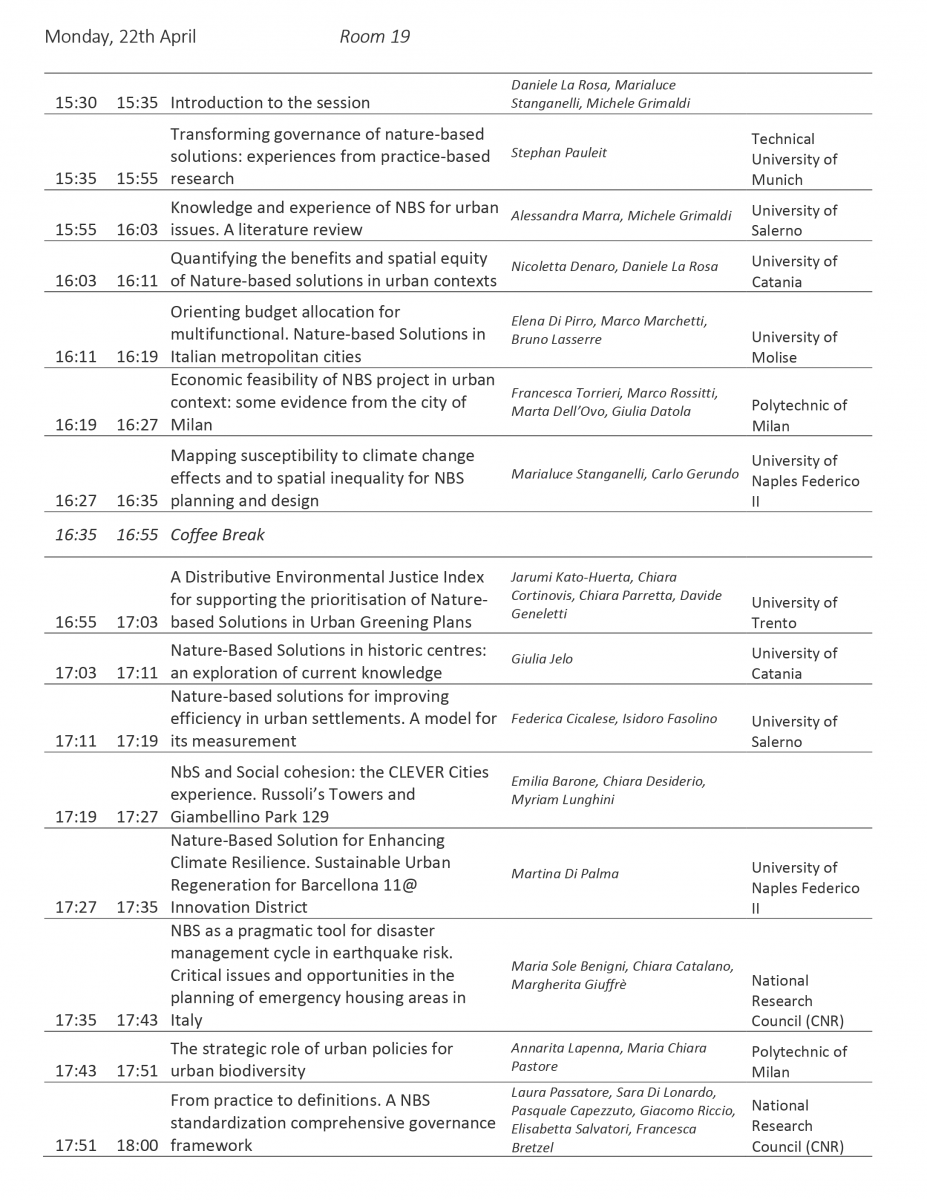
Cities are increasingly sensitive to issues such as climate change, social inclusion and gender inequality, lack of or unequal access to urban services, public health, urban environmental quality, and general well-being. Enhancing urban regeneration through the implementation of nature-based solutions offers many social, ecological and economic benefits.
However, the potential failure to consider important inter- and intragenerational equity issues and spatial justice implications in integrating Nature-Based Solutions (NBS) into policy and planning discourses presents a new challenge for planners and policymakers.
This session aims to analyse the geographical dimensions of NBS policies and practices related to risk reduction and urban regeneration, as well as to disclose how to operationalize equity practices in planning with NBS.
In particular, the session encourages contributions directed toward uncovering specific knowledge gaps in research and practice that cause the decoupling of equity and spatial justice principles with planning processes and NBS design and implementation. Contributions highlighting current methods for mapping and analysing the spatial dimension of NBS benefits for various urban issues are particularly welcome. The session is also open to the collection of experiences and case studies showcasing innovative governance and
planning approaches for facilitating the equity concept in spatial planning towards NBS oriented urban regeneration.
This session is organized within the activities of the Project “Nature for sustainable cities: planning costeffective and just solutions for urban issues”, PRIN 2022, funded by European Union, Next Generation EU.
SESSION SCHEDULE | DiARC University of Naples Federico II

